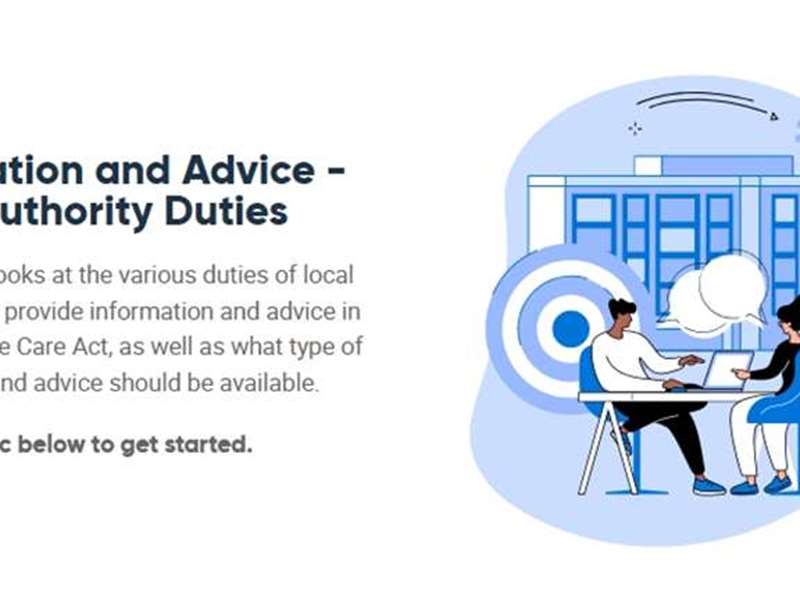Overview
Information and advice is fundamental to enabling people, carers and families to take control of, and make well-informed choices about, their care and support and how they fund it. Not only does information and advice help to promote people’s wellbeing by increasing their ability to exercise choice and control, it is also a vital component of preventing or delaying people’s need for care and support.
Audience
This course is intended for:
About this course
This course forms part of the suite of e-learning courses that have been developed to support the implementation of part one of the Care Act 2014. It is based upon the Skills for Care training materials.
Upon successful completion of both modules you will be automatically awarded a certificate containing the course name, completion date, CPD hours and learning objectives.
The course contains additional resource materials, useful links and refresher guides.
Objectives
In this course you will learn:
Content
Here are some of the topics covered in this course:
The advantages; Types of information and advice; Where can the problems lie?; Local authority duties; People who don’t have care and support needs; More than just basic information; National information sources; Key questions for authorities; Impartiality; Could you answer their questions?; Do you need the answers?; Who should you supply information and advice to?; Advice and Support provided in another authority; When to have financial information and advice; Access to financial information is fundamental; Independent financial advice; Can you make direct referrals?; Have the family done the right thing?; How to respond to carers; Self-funders opting out; Trigger points; Accessibility; Proportionality; Is it clear?; Strategic planning; 11 key principles; Links to key resources





